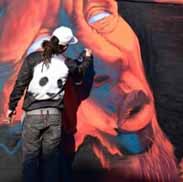Flashcards and Answers – Police Patrol Operations and Management
Unlock all answers in this set
Unlock answersquestion
3 basic styles of policing
answer
Watchman, legalistic, service style.
question
Exercise of Discretion of a patrol officer
answer
Make decisions based upon what is needed and appropriate at the moment. Tailor actions to the needs of the community. Recognize that an enforcement standard considered acceptable in one patrol area may not be acceptable in another. Accept responsibility for police work that is responsive to local expectations and conditions.
question
Citizen review board better that internal review
answer
More objective and thorough investigation. Higher rate of sustained complaints with more discipline. Greater deterrence of misconduct. Higher levels of satisfaction.
question
Three common forms of government.
answer
Mayor-council. Manager-council. Commission. Chiefs preference manager form (professional and insulated from politics).
question
Occupational stress sources in police
answer
Nature of police work, the police organization, external factors, individual factors.
question
Neutralizing cynicism
answer
Police selection methods. Supervisor's trained to detect. EAP, job rotation, aggressive career development programs, and in-service training programs to develop new skills and abilities.
question
5 characteristics viewed as important to police work success that create contradictory expectations.
answer
Emotionally restrained vs. express. Empathetic vs. firm. Group dependent vs. independent. Work hard vs. accept failure. Patient vs. stubborn.
question
Ways Supervisor's contribute to stress
answer
Unjust criticism/scapegoating. Lack of counseling skills. Unrealistic expectations. Contemptuous attitude. Insufficient concern. Poor communication skills. Excessive autocracy/lack of consensus.
question
Organizational stressors
answer
Autocratic. Hierarchial structure. Poor supervision. Lack of employee input. Excessive paperwork. Lack of admin support. Role conflict/ambiguity. Inadequate pay/resources. Adverse work schedules. Unfair discipline/evaluation/promotion.
question
Factors contributing to police corruption.
answer
Nature of police work. Officers clientele. Public attitudes. Leadership.
question
Types of training to avoid excessive use of force
answer
Cultural sensitivity/diversity. Intervention by fellow officers. Interaction of human perception and threat assessment. Decision making. Psychological methods of situation control. Deescalation/defusing techniques. Verbal control and communication.
question
Standard in Wise vs. Bravo to decide if force was excessive.
answer
1. Causes serious bodily injury. 2. Injury was grossly disproportionate to the need for action. 3. Action was inspired by malice rather than merely careless or unwise zeal.
question
Recommendations in use of force policies
answer
No warning shots. Strict restriction on shots at or from moving vehicles. Restriction on secondary weapons. Department should control type of weapon and ammunition. Officers involved in shooting place on admin leave. Psychological counseling.
question
3 categories of police pursuits
answer
1. Judgmental. 2. Restrictive. 3. Discouragement.
question
Advantages of Specialized Patrol
answer
Clear placement of responsibility. High levels of morale. Improved training/skill development. Positive public interest. High level of staff commitment to responsibilities.
question
Basic principles of police organization
answer
Simplicity. Organizing by function. Chain of command. Unity of command. Informal organization.
question
Patrol force staffing determinate
answer
Custom and tradition. Political expediency. Financial limitations.
question
Purpose of workload analysis
answer
Determine need for additional resources or reallocation of existing resources. Assess individual/group performance and productivity. Detect trends in workload that might indicate changing activity levels and conditions.
question
Ways Supervisor's achieve high motivation levels.
answer
Encourage self-development. Delegate responsibility. Recognize exemplary performance. Show confidence in subordinates. Demand accountability.
question
Why not to restrict the ability for citizens to file complaints?
answer
1. Agency sends message that not interested in policing self. 2. Weakens own internal inspection program by not seeking out improper conduct or promoting self discipline.
question
Ways Supervisor's achieve high motivation levels.
answer
Encourage self-development. Delegate responsibility. Recognize exemplary performance. Show confidence in subordinates. Demand accountability.
question
Why not to restrict the ability for citizens to file complaints?
answer
1. Agency sends message that not interested in policing self. 2. Weakens own internal inspection program by not seeking out improper conduct or promoting self discipline.



